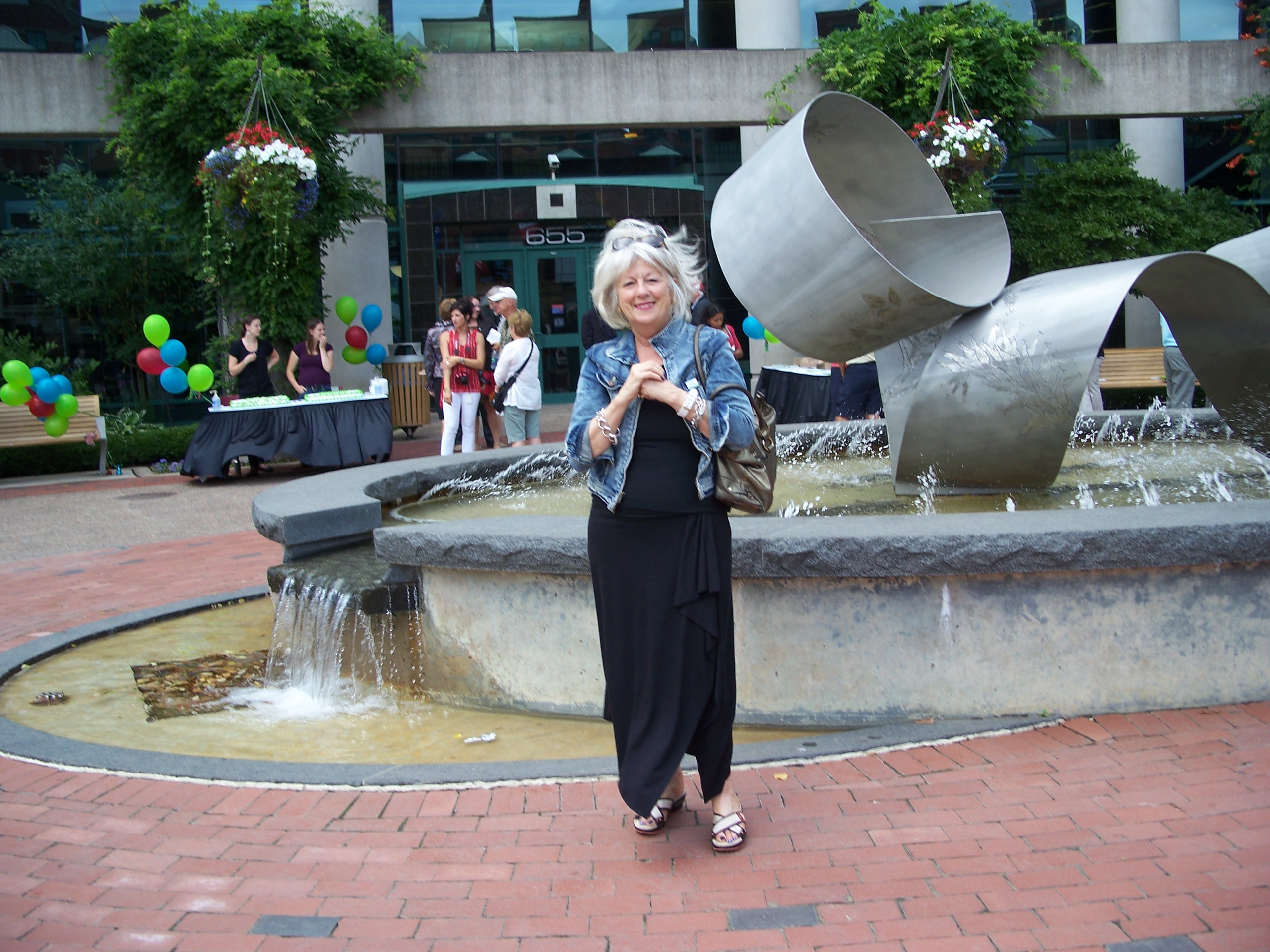[Paulette Theriault, founder of the Frye Festival]
Frye’s 100th birthday, on July 14, came and went without too much fuss anywhere, except here at the Frye Blog and in Moncton, where a statue of Frye, in brilliant bronze, was unveiled in front of the public library, Bob Denham’s donation of Frye books and related items (valued at over $40,000) was announced and showcased, and there were speeches followed by a barbecue and a birthday cake. Oh, the CBC rebroadcast the Cayley conversation, the Toronto Star featured a laudatory article, and The Globe and Mail printed a dismissive, ill-informed article by Bruce Meyers. Otherwise, not much. Throughout the year there have been and will be conferences and celebrations, but on the actual birthday, Moncton may have been the only place in Canada, the only place on the planet, to go out of its way. (I stand to be corrected.) So, the question is, Why Moncton?
In the early years of the Frye Festival, about 10 years ago, I remember Alvin Lee asking the same question, Why Moncton? Why is there a festival in Moncton and not in Toronto, where Frye lived, taught, and did his great work? Moncton seems (or seemed) an unlikely place to do justice to Frye. He lived here fewer than 10 years, graduated from high school in 1928 (at 16 years of age), left as soon as he could, and only came back a few times during the 1930s, to visit his parents. When his mother died in 1940, he returned to Moncton to see her one final time. As far as I know he did not return until fifty years later, in November, 1990, two months before his death, at the invitation of the Université de Moncton. Part of the answer is that Moncton is where Frye grew up and for that reason holds an importance in his life proportionally greater than the number of years he lived here. John Ayre, in his 1988 biography, paints a fairly detailed picture of Frye’s years in Moncton, which he calls “Moncton Exile” – a term that applies more to Frye’s mother than to Frye himself, though he admits he picked up some of the feeling from his mother. In 2003 Bob Denham gave a talk at the festival called “Moncton, Did You Know? Northrop Frye’s Early Years” in which he makes it clear that
[a]lthough Moncton was a place that Frye wanted to escape from, as with most things in life, there is always an “on the other hand,” and Frye’s experience there during a formative decade – from about 1920 to the time he went off to college in 1929 – was in many ways crucial to what “grew” him, in George Johnston’s phrase.
Bob makes use of newly discovered Frye material to show that “Frye’s experience in this place during his early years did bring into focus a number of key features in his imaginative and critical life.” I’ll mention just three of the points that Bob makes. (For the complete text of his remarks, search the title, Moncton, Did You Know?, on the blog website, or purchase of copy of “Verticals of Frye,” a collection of Frye festival talks I edited in 2005.) In one of his notebooks from the 1960s Frye says “that I cannot really get at the centre of a problem unless something in it goes back to childhood impressions.” And he reports that some of his “most vivid dream settings have been on Moncton streets. Streets are, of course, a labyrinth symbol, full of Eros: they recapture not past reality but my reality, reality for me.” His experience of Moncton, then, continued to give shape to his interior life for decades. Continue reading
